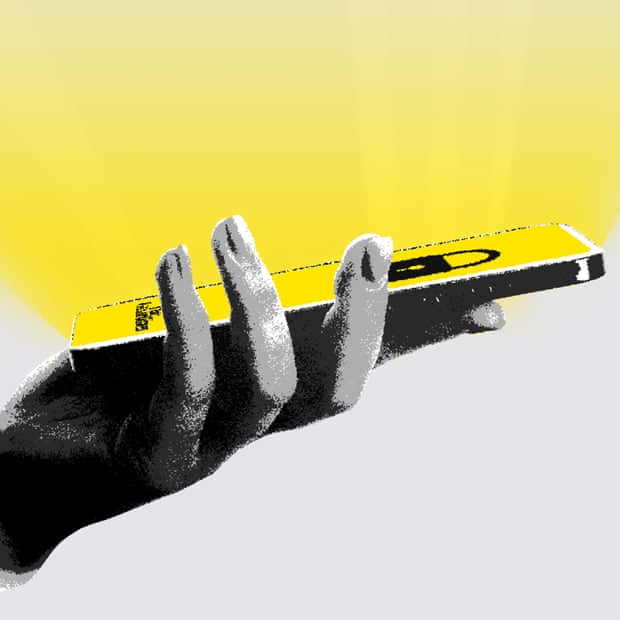NepalIsrael.com auto goggle feed
A second woman has come forward to an inquiry investigating sexual abuse allegations against Karim Khan, the chief prosecutor of the international criminal court (ICC), the Guardian has learned.
The woman has alleged that while working for the prominent British lawyer earlier in his career, he behaved inappropriately, subjecting her to unwanted sexual advances, abused his authority over her, and repeatedly sought to pressure her into sexual activity.
Khan, who denies sexual misconduct “of any kind”, has temporarily stepped aside as head of the ICC’s prosecution division as he awaits the outcome of the inquiry into separate abuse allegations brought by a member of his staff at the court.
Launched last year, the inquiry by a UN watchdog received the new allegations from the second woman this summer. Its investigators are understood to have conducted several interviews in order to examine her claims, which date back to 2009.
At the time, the woman was in her 20s and working as an unpaid intern for Khan. He was a leading defence lawyer at the ICC and other war crimes tribunals in The Hague, having notably represented the former Liberian president Charles Taylor.
Speaking exclusively to the Guardian, the woman said Khan abused his power and influence over her and described his behaviour as a “constant onslaught” of advances. “He shouldn’t have been doing it,” she said. “He was my employer.”
The woman spoke on condition of anonymity as she fears reprisals and adverse consequences for her and her family if publicly identified. She came forward after reading about the more recent allegations made against Khan by the ICC staffer.
The second woman’s account of Khan’s alleged mistreatment of her contains several similarities to the staffer’s allegations, details of which have been shared by people familiar with her claims. Both women have alleged that Khan would ask them to come to work at his home. There, they each allege, he would sit beside them on a couch, touch them, kiss them and try to persuade them to lie down with him.
Lawyers for Khan did not address specific details of either woman’s allegations but said: “It is wholly untrue that he has engaged in sexual misconduct of any kind.”
They said Khan “categorically denies” having “harassed or mistreated any individual, or having misused his position or authority, or engaged in any conduct that could be interpreted as coercive, exploitative, or professionally inappropriate”.
They claimed Khan had provided detailed evidence to the inquiry that “sits squarely at odds with the allegations that have been put to him” and “in a number of material respects show those allegations to be demonstrably untrue”.
Khan, 55, was elected in 2021 to serve a nine-year term as chief prosecutor. He is in effect the public face of the ICC, a permanent court of last resort that investigates and prosecutes individuals accused of atrocities.
Since taking office, Khan has raised the court’s profile and thrust it into the crosshairs of major powers, with arrest warrants issued for suspects including the Russia’s Vladimir Putin and Israel’s Benjamin Netanyahu.
His tenure was thrown into turmoil last year when the allegations made by the ICC staffer became public. The woman, a lawyer in her 30s who worked directly for him, alleges the misconduct occurred over an extended period between 2023 and 2024.
Khan and his representatives have sought to cast the emergence of the allegations as part of a campaign by hostile external actors to discredit and put pressure on him in response to actions he has taken against Netanyahu and the former Israeli defence minister Yoav Gallant.
While the Guardian understands there have been attempts by pro-Israeli actors to brief journalists and leak information about the ICC staffer’s complaint, it has found no evidence to suggest either woman has raised the allegations as part of an elaborate plot against the prosecutor.
Once the UN watchdog’s investigation is completed, its findings will be reviewed by a panel of judicial experts who will advise the ICC’s governing body if any action should be taken against Khan.
If he is found to have committed “serious misconduct” or a serious breach of his duties, the prosecutor could face an unprecedented reckoning: a secret ballot in which the ICC’s 125 member states would vote on whether to remove him from office.
‘Confused and humiliated’
As the sexual abuse allegations shook the ICC last year, Khan issued a statement insisting that in 30 years of working in “diverse contexts” there had “never been any such complaint lodged against me by anyone”.
Patricia (not her real name) said that when she read about the allegations and saw Khan’s statement, her “heart sank”. She said that previously, as an intern at the start of her career, she had felt unable to make a formal complaint.
Patricia said that before going to work for Khan she had viewed the internship as an “exciting and meaningful” opportunity. “Karim was a well-connected, well-respected person who could make things happen, and someone who would put a good word in for you,” she said.
Quick Guide
Contact Harry Davies about this story
Show

If you have something to share about this story, you can contact Harry using one of the following methods.
Secure Messaging in the Guardian app
The Guardian app has a tool to send tips about stories. Messages are end to end encrypted and concealed within the routine activity that every Guardian mobile app performs. This prevents an observer from knowing that you are communicating with us at all, let alone what is being said.
If you don’t already have the Guardian app, download it (iOS/Android) and go to the menu. Select ‘Secure Messaging’.
To send a message to Harry, please choose the ‘UK Investigations’ team.
Signal Messenger
You can message Harry using the Signal Messenger app. Use the ‘find by username’ option and type hfd.32
Email (not secure)
If you don’t need a high level of security or confidentiality you can email harry.davies@theguardian.com
SecureDrop and other secure methods
If you can safely use the tor network without being observed or monitored you can send messages and documents to the Guardian via our SecureDrop platform.
Finally, our guide at theguardian.com/tips lists several ways to contact us securely, and discusses the pros and cons of each.
However, she said working for Khan “came at a price it shouldn’t have come at, and the price it came at did disturb and distress me for some time afterwards”.
According to Patricia, an early experience of Khan’s alleged misconduct occurred at the court’s offices where she claimed Khan “groped” her breasts with a “prolonged” caress that was “completely unconsented”.
“It wasn’t like ‘oops, I brushed the back of my hand against you, I’m sorry’,” she said. “He was too close.”
Patricia said the incident in the office left her “confused and humiliated”, but over the following weeks she was required to work closely with Khan on preparing part of a case. During this period, she said, Khan asked her on at least six occasions to work at his home in The Hague, where they would be alone together.
She said that when working at his apartment she had to negotiate his advances while trying to get work done. “I was trying to figure out how to stay in his good graces and get the work experience while not sleeping with him and succumbing,” she said.
This was difficult, she said, “because when we were in his house it was just like a constant onslaught”. She claimed that each time she worked at the apartment “it would be another round of [Khan] sitting next to me on the couch and touching me and kissing me and trying to convince me to sleep with him”.
Patricia said she “felt trapped” at the time. She was covering the costs of the internship and felt it was vital she received a positive letter of recommendation from Khan. Complaining was not an option, she said, and the choice she faced was to “either persevere or leave”.
“It felt critical to me to get through the experience,” she said. “I remember walking to his house and feeling like I had to amp myself up, feeling like I had to fortify myself.”
She said she refused Khan’s explicit requests to have sex. “I remember coming up with all kinds of dumb excuses for why I did not want to sleep with him, just to try and not make him angry.”
She said although she was “miserable” and depressed while working for Khan, she decided to stay. After the internship had finished, she received a glowing recommendation letter from Khan. She said it “felt like a deal with the devil”.
Patricia said she remained in touch with Khan for several years as she felt a professional need to keep on good terms with him. Over time, she said, she came to realise how Khan’s behaviour had affected her.
She said Khan would send her messages from time to time long after the internship, though she eventually stopped responding. In 2019, she received what she described as a “weird message” out of the blue. Khan said he was thinking about her. He thanked her for her “good company” and for “being a very good friend to me”.
She replied: “Karim, it does not make me happy to hear from you, that is why I do not respond. I wish you wouldn’t contact me, please don’t do it any more.” She did not hear from Khan again.
ICC staffer: ‘Ceaseless’ advances
After reading about the ICC staffer’s allegations against Khan last year, Patricia contacted the Guardian. She said she was “disturbed” that something similar to her experience was alleged to have happened again so many years later.
This summer she provided formal testimony to the UN’s Office of Internal Oversight Services (OIOS), the body investigating the ICC staffer’s allegations. A source familiar with the inquiry said the watchdog had reviewed material shared by Patricia and interviewed people close to her. A spokesperson for the OIOS said it did not comment on its investigation activities.
For the past nine months, investigators have been examining the ICC staffer’s allegations. As the Guardian reported last year, her claims include allegations of coercive sexual behaviour and abuse of authority. The alleged sexual misconduct is said to have occurred in hotel rooms during work trips, in Khan’s office at the ICC and at his home.
Since then, new details have emerged about the staffer’s allegations. Several ICC sources and other individuals with knowledge of the claims said there were multiple instances of alleged sexual abuse said to have occurred at Khan’s home after she was asked to go there for work reasons.
According to two sources, the staffer has alleged Khan would often bring her over to a couch in the living room where he would touch her and attempt to persuade her to engage in sexual activity. She is said to have tried to avoid his advances and attempted to make excuses to leave.
The staffer has described Khan’s advances at his home as “ceaseless”. In one record of the allegations, she said: “He would try to kiss me and I would always move my head away and move back and he would tell me to stop moving and say ‘kiss me, kiss me’.”
Khan’s position
The law firm representing Khan, Carter-Ruck, said he had an unblemished record and denied the allegations. They said he was “cooperating fully and transparently” with the ongoing inquiry but that he had “grave concerns as to whether the investigation can deliver due process”.
They claimed Khan “has been the subject of an orchestrated campaign” and said he was aware of attempts to “discredit him and destroy his personal reputation through the media, as a direct consequence of his role in issuing the arrest warrants” for Netanyahu and Gallant.
Last year the Guardian, with the Israeli-Palestinian publication +972 Magazine and the Hebrew-language outlet Local Call, revealed how Israel’s intelligence agencies had run a campaign against the ICC. This included a Mossad operation that attempted to intimidate and smear Khan’s predecessor Fatou Bensouda.
Against this backdrop, Khan and people acting on his behalf have sought to suggest in private and to journalists that he is the subject of a similar effort by Israeli intelligence.
In recent weeks, outlets such as Middle East Eye (MEE) and Le Monde have published reports about pressures purportedly placed on Khan. An MEE article claimed the ICC’s investigation into Israeli war crimes had been “derailed by threats, leaks and sex claims”, and raised questions about the reliability of the staffer’s allegations.
Five ICC sources familiar with Khan’s response to the claims when the allegations first surfaced told the Guardian that his team concluded it was highly unlikely the abuse claims were part of an intelligence operation. One of the sources said pro-Israeli interests “may have exploited the story but they didn’t create the story”.
The ICC staffer at the heart of the inquiry has been particularly distressed by suggestions she is part of a pro-Israeli plot, according to people who know her. They noted that she is Muslim, and was known within the prosecutor’s office to have been supportive of its investigation into senior Israeli officials’ crimes in Gaza.
The post”Second woman accuses ICC chief prosecutor Karim Khan of sexual misconduct | International criminal court” is auto generated by Nepalisrael.com’s Auto feed for the information purpose. [/gpt3]




